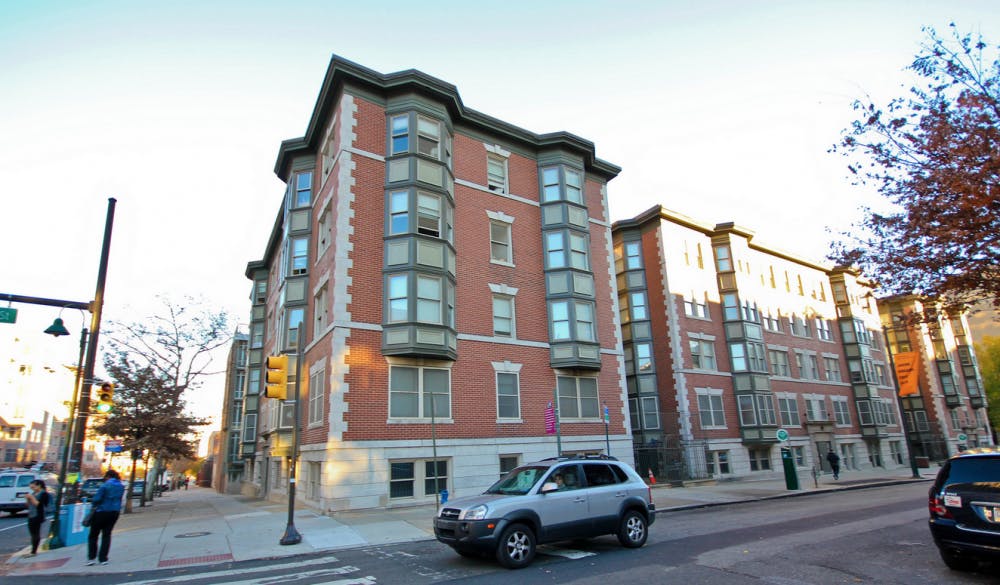
Kings Court English House
Credit: Luke ChenFor College senior Stamati Liapis, being an RA did not end when his residents left his hall. Liapis has stayed in contact with his former residents and continues to maintain a close mentoring relationship. This year, his residents from last year’s Huntsman Hall in Kings Court, where Liapis is an RA, made him a video for his birthday.
“It was really touching,” he said.
The relationship between Liapis and his residents goes both ways. Earlier this year, a former resident approached him to talk about issues with his current roommate. The two went on a walk to talk out the problem, which helped the student resolve the issue, Liapis said.
With RA applications now available online as of Tuesday, more students like Liapis can help lead and create a community in their College Houses. Current sophomores and upperclassmen with at least a 2.5 GPA are eligible to apply. The application deadline is immediately after winter break, on Jan. 15, and students can interview as early as today.
Applicants can choose to apply to one or more of the College Houses, which each have their own individual process.
In Ware College House, after applicants apply online, they are interviewed by a panel made up of the House Dean, 2-3 RAs and a GA. This interview is followed by a mixer between potential and current RAs.
All applicants are notified of their acceptance for the following year by Jan. 30.
While the position of an RA comes with several perks, such as free housing and a free meal plan, the opportunity to be a mentor is the main attraction for some applicants.
“I was interested in being an RA because it is the most formalized mentor role you’ll have in your life,” Engineering senior Amit Pujari said. “Getting to know freshman and helping them grow is really cool.”
Despite thoroughly enjoying his role as a mentor, Pujari admits that sometimes it is hard to strike the right balance in his relationship with students on his hall.
“Balancing being the enforcer and a friend is the hardest part,” Pujari said.
“You’re not the cop, or the mom, or the dad,” Phil Davis, an RA and College senior in Ware added. “The goal is to try and bestow on them some sense of personal responsibility.”
RAs face other challenges as well when working with students in their hall, particularly those who suffer from mental health issues. Davis said that for him, this was the hardest part about being an RA.
All RAs are required to go through rigorous mental health awareness training, which includes meeting with CAPS and outside consultants and participating in several simulations.
“I felt really prepared going into it, but nothing can really prepare you for it when you’re faced with a real person,” Davis said.
In addition to helping residents adjust to the stress of university life, RAs must also keep up with the other responsibilities in their lives.
“Sometimes you can get so consumed in the RA job, you can start losing track of your own stuff,” Liapis said.
Earlier this year, balancing responsibilities became more of a challenge for fourteen RAs who had their work-study either reduced or eliminated. These RAs were not notified of this change until October.
“You get a free meal plan being an RA, but the meal plan doesn’t cover an entire semester’s worth of meals, so if you don’t have a kitchen in your dorm room, which most RAs don’t, I feel like it would be really hard,” Liapis, who was not one of the RAs who had his work-study cut, said.
Despite the pressures of being an RA, Liapis said it is still worth it.
“The experience is incredibly meaningful, you don’t even realize how cool it is until you’re there planning activities, and helping build a community,” Liapis said. “I would highly recommend it.”
The Daily Pennsylvanian is an independent, student-run newspaper. Please consider making a donation to support the coverage that shapes the University. Your generosity ensures a future of strong journalism at Penn.
DonatePlease note All comments are eligible for publication in The Daily Pennsylvanian.








